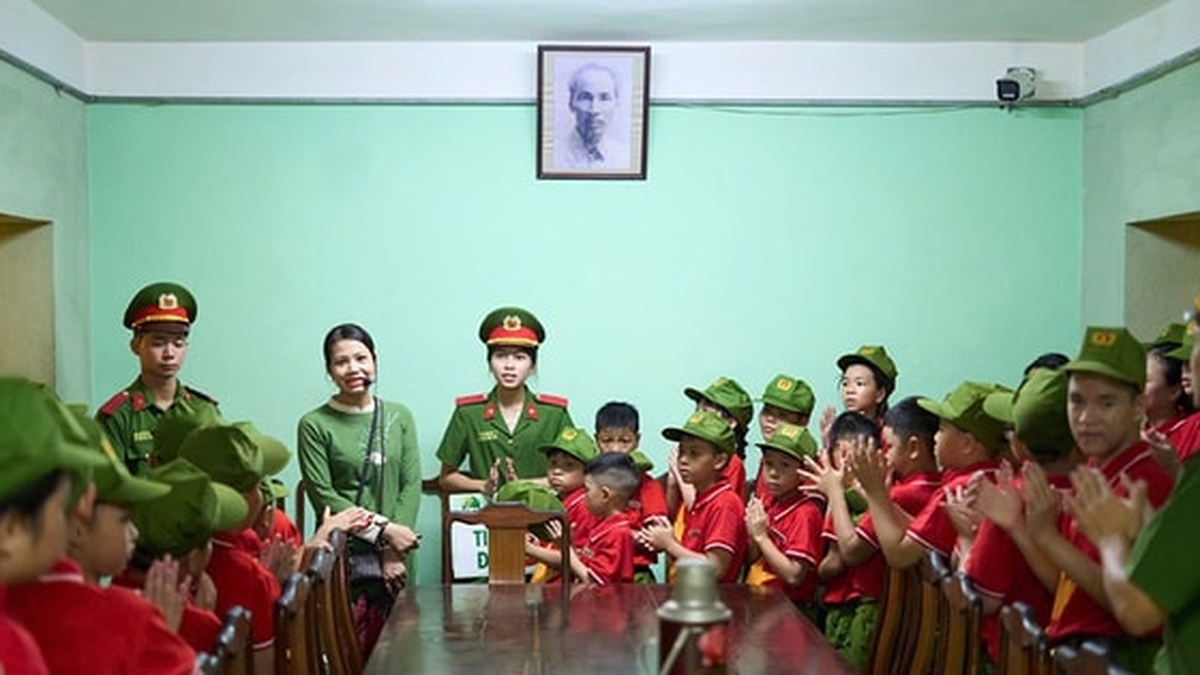This is the message emphasized by Deputy Minister of Health , Mr. Nguyen Tri Thuc at the International Scientific Conference on School Nutrition 2025 with the theme "For a healthy Vietnam - For Vietnamese stature", which recently took place.
 |
| The Party and State always consider nutrition work as an inseparable part of the human development strategy. |
According to the Deputy Minister, nutritional deficiencies or imbalances will lead to a series of consequences: children are stunted and malnourished; adults are susceptible to chronic diseases such as diabetes, cardiovascular disease, obesity; society has to face the burden of medical costs and decreased labor productivity, factors that directly affect the country's competitiveness.
In recent years, Vietnam has recorded many encouraging achievements: from 2010 to 2020, the average height of 18-year-olds increased by 3.7 cm in men and 2.6 cm in women.
The rate of stunting in children under 5 years old has decreased from over 30% to under 19.6% (in 2020), a rate of improvement higher than the average of the Southeast Asian region. This is the result of the synchronous and drastic participation of the entire political system and society.
However, in addition to the achievements, nutrition work still faces many challenges. In many remote areas, ethnic minority areas, the rate of stunting in children is still over 30%, nearly double the national average.
Meanwhile, in big cities, the rate of overweight and obesity among students is increasing rapidly and has exceeded 20%. Although the average height of Vietnamese youth has improved, it is still significantly lower than that of Japan, Korea and Thailand.
These issues show that improving nutrition, especially in school-age children, the final “golden” stage for effective intervention, is a strategic and urgent task. Deputy Minister Nguyen Tri Thuc emphasized the need to build a comprehensive, methodical, in-depth school nutrition program with the participation of the whole society.
At the workshop, the Deputy Minister of Health proposed three key groups of solutions. First of all, perfecting institutions and policies, considering investment in nutrition as investment in development.
It is necessary to build a national School Milk and School Nutrition program, ensuring scientific, transparent and effective nature; at the same time, design appropriate policy mechanisms to mobilize resources from businesses and the community, increasing the sustainability of the program.
Second, it is necessary to change awareness throughout society, build a comprehensive school nutrition ecosystem, not just stopping at "eating enough" but "eating right, eating enough, eating diversely and safely", combined with scientific physical exercise.
Third, promote digital transformation and enhance international cooperation. Vietnam needs to build a digital database to monitor menus and assess students' nutritional and health status; at the same time, proactively absorb and creatively apply successful models from countries such as Japan, Korea, Finland, etc. to practical conditions in the country.
Notably, at the Workshop, Dr. Le Thai Ha, Deputy Director of the Department of Disease Prevention (Ministry of Health) said that the Ministry of Health is drafting the Law on Disease Prevention, which includes a separate chapter on school nutrition.
The draft clearly states that students will be educated and informed about nutrition; guaranteed age-appropriate school meals and have their nutritional status regularly assessed.
The regulations will move from being recommended to mandatory, clearly defining the responsibility of schools in taking comprehensive care of students' health, both physically and mentally, through ensuring food safety, practicing proper nutrition, and increasing physical activity.
The Ministry of Health is making efforts to complete the Draft to submit to the Government to report to the National Assembly for consideration and approval at the session next October.
Speaking at the end of the workshop, Deputy Minister Nguyen Tri Thuc called on ministries, branches and localities to make school nutrition a priority in their action plans.
In the education sector, teachers need to become pioneers in spreading knowledge and scientific nutrition practices. The business community should demonstrate social responsibility by joining hands with the State and the people to improve the quality of school meals.
Parents need to be trusted allies, starting with family meals. At the same time, the Deputy Minister also respectfully requested international organizations to continue to accompany, share experiences and support Vietnam in the journey for a healthy, intelligent and happy future generation.
Source: https://baodautu.vn/thuc-day-dinh-duong-hoc-duong-vi-mot-viet-nam-khoe-manh-phat-trien-toan-dien-d359428.html




































































![[Photo] Party and State leaders visit President Ho Chi Minh's Mausoleum and offer incense to commemorate Heroes and Martyrs](https://vphoto.vietnam.vn/thumb/402x226/vietnam/resource/IMAGE/2025/8/17/ca4f4b61522f4945b3715b12ee1ac46c)






























Comment (0)